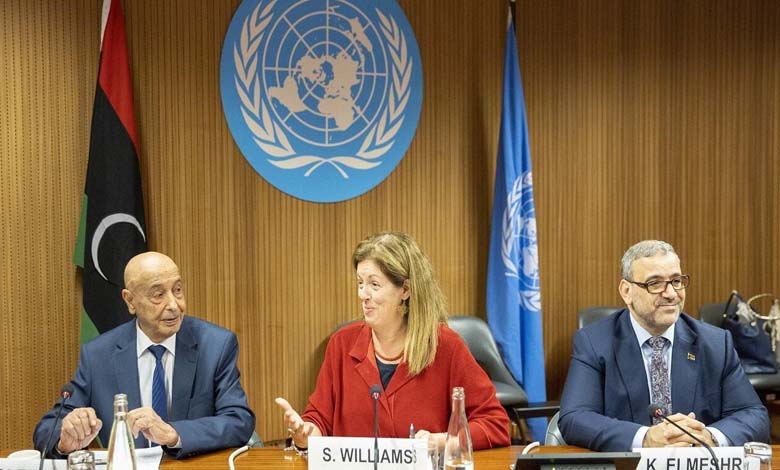International Interface or Political Islam Tool? UN Mission in Libya Accused of Backing the Muslim Brotherhood

In a move widely seen as siding with political Islam, the United Nations Support Mission in Libya (UNSMIL) welcomed the controversial appointment of Mohamed Takala — a figure closely associated with the Muslim Brotherhood — as President of the High Council of State. This endorsement comes despite serious legal and political disputes surrounding the legitimacy of the election session, deepening divisions and potentially undermining Libya’s fragile national reconciliation process.
-
Letters of Mohamed al-Menfi before the United Nations: Building Libya, External Intervention, Rejection of Conflict
-
Al-Mishri Denies New Session to Elect Head of Libya’s High Council of State
According to a statement reported by Al-Arab (London), UNSMIL expressed its support following Takala’s victory, which was backed by outgoing Prime Minister Abdul Hamid Dbeibah. The election took place last Sunday in Tripoli during a highly contentious session attended by only a limited number of council members, amid widespread boycotts and allegations of political manipulation.
Observers argue that the UN mission’s position reflects a clear alignment with Dbeibah’s political choices and alliances with Islamist forces, particularly the Muslim Brotherhood. Rather than acting as an impartial international mediator, the mission is accused of becoming a key player exacerbating the crisis by supporting de facto authorities and partisan militias.
-
Tetteh set to present comprehensive roadmap on Libyan elections to the UN Security Council
-
Accusations of Bias Target UN Mission in Libya
Analysts warn that UNSMIL’s move undermines the previous reconciliation efforts between Parliament Speaker Aguila Saleh and former High Council President Khaled al-Mishri. Their negotiations had produced a crucial agreement aimed at forming a unified government to restore legitimacy to Libya’s institutions.
Regional and international actors are suspected of pressuring the UN mission to back Takala, a political Islamist figure who emerged during the now-defunct General National Congress — an entity dominated at the time by the Brotherhood — and was instrumental in rejecting the 2014 election results that triggered Libya’s long-standing political divide.
-
Libya: Dbeibeh Uses Religion and Wealth to Cling to Power as Protesters Intensify Pressure
-
Libyan Expert: Dbeibeh’s Move Is Too Late… Militias Have Become Partners in Power
Khaled al-Mishri has strongly condemned the UN statement, describing it as a blatant interference in a legal dispute and a violation of the neutrality that an international mission is expected to maintain. He emphasized that the contested session was held outside legal procedures and was plagued by allegations of bribery and electoral fraud, as highlighted by several activists and observers.
Political analyst Sanoussi Ismail remarked that Takala — whom he described as largely passive during his previous tenure — obstructed Egypt’s efforts to foster a political resolution. His reappointment, Ismail argues, aims to reinforce Dbeibah’s grip on power and block any new political roadmap that could unseat the dominant Islamist alliance in Tripoli.
-
Clashes, Divisions, and Delayed Solutions… Libya on the Brink of Explosion
-
After the arrest of a State Council Deputy in Derna… Libya’s Brotherhood obstruct solution initiatives again
Libyan researcher Ahmed al-Aboud further noted that UNSMIL’s hasty congratulations to Takala, before Libyan courts could rule on the session’s legitimacy, reveal a premeditated attempt to derail the rapprochement between Parliament and the High Council. This raises concerns as the UN prepares to unveil a new roadmap, feared to be tailor-made to suit the Brotherhood and its allies.
These developments fuel serious concerns about a renewed spiral of conflict in Libya, entrenching the political divide between Tripoli and Benghazi and allowing foreign interference to continue dominating the Libyan scene — at the expense of the people’s aspirations for peace and lasting stability.
-
Libya: The Muslim Brotherhood Confuses the Cards and Exacerbates Differences… How?
-
What are the new movements of the Muslim Brotherhood to obstruct the elections in Libya?












